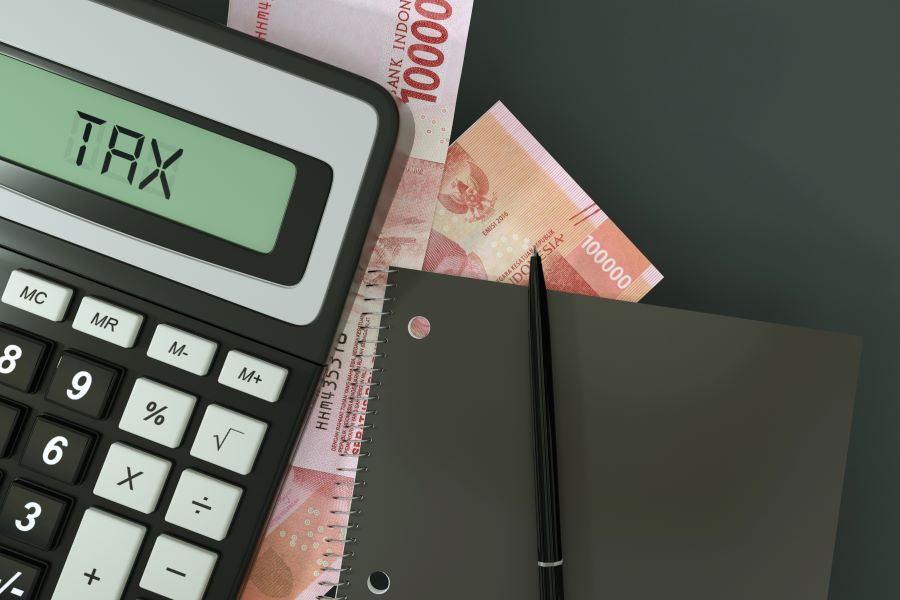The rapid development of crypto-asset trading and transactions in the country has enticed the government to impose a tax on the commodity
The Indonesian government has been planning for some time to impose tax levies on the digital world as it saw the potential of tax income from this field. Throughout 2020-2021, the government has issued several tax regulations for e-commerce transactions, including the imposition of value-added tax (VAT) for trading through the electronic system. Recently, the government issued other regulations targeting the financial digital and crypto markets, as well as establishing detailed procedures for levying VAT and income tax. This article briefly discusses important matters in the regulations.
Crypto markets

Lawyer and Member of Indonesia Fintech Association’s Board of Ethics
Tel: +62 818 103 949
Email: freddykaryadisg@gmail.com
The Ministry of Finance issued regulation No.68/PMK.03/2022 (PMK 68) on VAT and income tax of crypto-assets trade transaction, effective from 1 May 2022. The following are subject to the imposition of VAT:
- Intangible taxable goods in the form of crypto assets by the crypto assets’ sellers. This includes the sale and purchase of crypto assets with fiat money, the swapping of crypto assets, and/or the swapping of crypto assets with other goods and/or services.
- Taxable services in the form of the provision of electronic facilities for crypto assets trading by the organiser through the electronic system, or penyelenggara perdagangan melalui sistem elektronik (PPMSE). This includes the provision of services for the sale and purchase of crypto assets with fiat money, the swapping of crypto assets, e-wallet services for the deposit, withdrawals or transfers of one crypto asset to another party’s account, and the management of the media for the storage of crypto assets.
- Taxable services in the form of transactions involving the verification of crypto assets services and/or management services of the mining pool of crypto assets.
Any income received by the crypto-asset traders, PPMSE, or crypto miners in relation to the crypto assets will be subject to income tax.

Lawyer and Alumni of New York University
Email: anastasia.irawati@nyu.edu
Tax income tariff for crypto-asset traders. The income tax of traders resulting from the crypto-assets transaction will be subject to final income tax with the following tariffs:
- If the PPMSE is a registered crypto-asset physical trader, the tariff would be 0.1% of the transaction amount.
- If the PPMSE is a non-registered crypto-asset physical trader, the tariff would be 0.2% of the transaction amount.
The income tax would be withheld by the PPMSE. For an offshore PPMSE that has been appointed as a VAT collector, it would also be appointed as an income tax collector. Therefore, it must withhold the income tax from Indonesian taxpayers as the customers.
Tax income tariff for the PPMSE. The tax tariff on the income of the PPMSE from its services in relation to the crypto-assets transaction in its platform would be subject to the applicable income tax tariff under the prevailing laws and regulations.
Tax income tariff for crypto miners. The income tax tariff for the earnings of crypto miners (including block rewards and transaction fees) would be subject to a final income tax of 0.1% of the earnings.
A crypto-asset trader will be exempted from the income tax obligation if the trader is a tax resident in a country with a double taxation avoidance treaty with Indonesia, where the collection right of the income tax is not with the Indonesian government.
A PPMSE will be exempted from the obligations to withhold income tax from the crypto-assets transaction if it only provides e-wallet services, only unites the sellers and the buyers, or does not facilitate the crypto-assets transactions. In this case, the income tax must be paid directly by the crypto-assets sellers.
Formula for VAT calculation of crypto-assets trading
|
VAT Objects |
Formula |
Collection |
|
Intangible taxable goods in the form of crypto assets by the crypto assets’ sellers |
|
The VAT will be collected and reported by the PPMSE. If the PPMSE is an offshore entity, it may be appointed as a VAT collector under the prevailing regulations |
|
Taxable services in the form of the provision of electronic facilities for crypto assets trading by the PPMSE |
General VAT tariff x the amount of the commission or fees received for the services |
The VAT will be collected and reported by the PPMSE appointed as a taxable entrepreneur under the prevailing laws and regulations |
|
Taxable services in the form of verification of crypto assets transactions and/or management services of the mining pool of crypto assets by the crypto miners |
10% x general VAT tariff x the amount of money for the crypto assets received by the miners, including the block reward |
The VAT will be collected and reported by the crypto miners that are appointed as taxable entrepreneurs under the prevailing laws and regulations. |
*Note: The applicable general VAT tariff as of the date of writing this article was 11%.
Fintech
The Ministry of Finance issued regulation No. 69/PMK.03/20 (PMK 69) on income tax and VAT on the performance of financial technology, which targets the imposition of taxation on fintech players, including peer-to-peer (P2P) lending and payment services providers, which will be effective from 1 May 2022. The regulation focus to impose income tax for the earnings in a P2P transaction (of the interest amount), and VAT for the services provided in the fintech market.
The interest earned by the lender in a P2P transaction will be deemed the lenders’ earnings, which would be subject to income tax and must be reported in the annual tax return. Under the Income Tax Law, the interest would be subject to:
- An income tax tariff of 15% on the gross interest for domestic taxpayers or permanent establishments.
- An income tax tariff of 20% on the gross interest amount or in accordance with the agreed amount in the tax treaty for foreign taxpayers.
The income tax must be withheld by the P2P operator that has obtained a licence from the Financial Services Authority. If the interest is not paid through the P2P operator, the borrower must withhold the tax income. PMK 69 categorises fintech as the following:
- Payment services providers, including e-money, e-wallet, switching, clearing and payment gateway activities, final settlement and fund transfer.
- Investment settlement operators.
- Equity crowdfunding operators.
- P2P operators.
- Investment management operators.
- Online insurance (insurtech).
- Market support services.
- Digital financial support services and other financial service activities, including eco crowdfunding, Islamic digital financing, e-waqf and e-zakat, robo adviser and credit scoring, invoice trading, voucher or token, and other blockchain-based products.
The regulation requires the fintech operator who has been appointed as a taxable entrepreneur to collect the VAT over the fee, commission, merchant discount rate or other consideration (as applicable) obtained from the services provided to the customer. To avoid doubt, PMK 68 stipulates that the VAT would not be imposed on the nominal value of the transaction, e.g. the top-up amount of the e-money. In the case of e-money, the VAT object would be the administration fee imposed by the issuer to the consumers, e.g., the administration fee for the top-up of the e-money.
The VAT tariff would be the tariff under the prevailing laws and regulations. As of the date of this article, the applicable tariff is 11%. PMK 69 exempts the following activities from the imposition of the VAT tax:
- Fund transfer services within the same bank to customers holding current accounts, time deposits, certificate deposits, savings, and/or other equivalent forms.
- Fund placement services or financing by investors (not the equity crowdfunding fee services by the equity crowdfunding operators) in an equity crowdfunding platform.
- Fund placement services, lending, or financing by lenders (not the P2P services charged by the P2P operators) in a P2P platform.
- The online insurance services provided by the insurance companies.





























